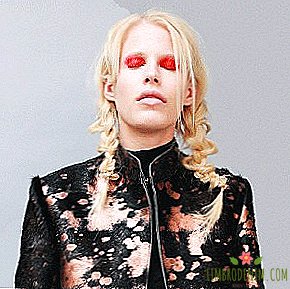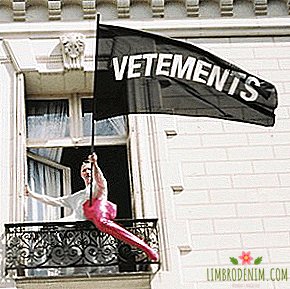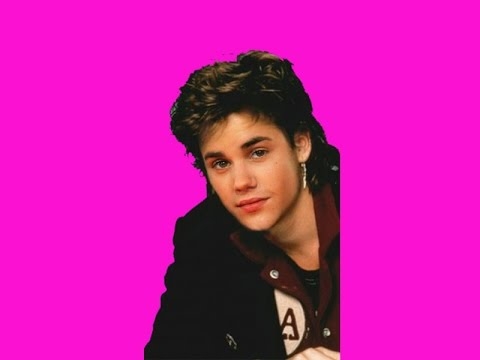"The suggestion to" cure "autism sounds crazy": Autistic people about themselves and their lives
According to the Ministry of Health, one out of a hundred Russian children may have diagnosed with autism. In practice, many may simply not be aware of their peculiarities - and the myths and conjectures surrounding the autism spectrum disorder make it difficult to change the situation. Not so long ago, we discussed what was necessary to know about autism, and now we decided to talk to the people themselves who were diagnosed.

 Mom called me an "unusual girl." My father thought that lack of willpower was to blame for my problems. Accidentally, before the eleventh class, I came across information about autism and read everything I could find on the Internet, passed the tests and realized that I have Asperger's syndrome — autism without speech delay. The diagnosis was confirmed by three specialists.
Mom called me an "unusual girl." My father thought that lack of willpower was to blame for my problems. Accidentally, before the eleventh class, I came across information about autism and read everything I could find on the Internet, passed the tests and realized that I have Asperger's syndrome — autism without speech delay. The diagnosis was confirmed by three specialists.
The school was the worst period. I was hounded. If you were beaten at work, spoiled your belongings and impeded your movement, the authorities would immediately intervene. But children are not considered to be people - especially neuro. During my studies, I constantly experienced increased anxiety and sensory overload. I had problems with retelling and speaking, and at school it is considered, if you can’t talk about something, then you don’t know it.
I have a special site for newbies about what autism is. Children need to talk about autism, but not to call for pity and tolerance, but for acceptance. My school story reminds me very much of Nine of Little Rock: having learned about it, I finally stopped feeling shame for having endured.
It is difficult for me to be in a noisy room without headphones: it is difficult to separate one sound from another, gradually it begins to seem as if the world is unreal, I stop and almost cease to perceive what is happening. It is difficult to walk down the street on a sunny day. I get tired of glowing garlands. About 30% of autistic people are epileptics, these garlands in general can be dangerous to their lives.
I was always puzzled by questions about what I feel: I do not think in words, and it is difficult to separate feelings from physical sensations. Often attributed to me feelings that I do not feel. Non-autistic people often do not understand the facial expressions of autistics, and autistics - the facial expressions of neurotypics. But at the same time, a lack of understanding of autists is considered a pathology, and the fact that neurotypes do not understand autists is the norm. These are consequences of the pathology paradigm.
I can do autistic projects for many hours and can’t get tired of them. Activism outside the Internet is exhausting, but it is a very pleasant fatigue, because I adore what I do. Another special interest is politics, I can talk about it for hours.
My stimming is expressed in the fact that I run or walk very quickly. I swing on the swing. Swaying back and forth, when there is no opportunity to walk. Shaking foot or hands. Gnaw nails. Spinning in the hands of spinners, fjj-cubes, wheels of small cars or small balls. I go over long beads. Chew gum, special rodents, strings on clothes.
I have a bad memory for faces. If I did not recognize you, it does not mean that I ignore you. Sometimes it's hard for me to remember to greet. It is difficult for me to understand the habit of neurotypics to reduce all arguments to emotions, it is difficult to communicate with them consistently. It is difficult to tolerate light touch, so please ask for permission before touching me.
My girlfriend is also autistic and, like me, light touch is unpleasant, so there are no problems with sex. Many of my autistic acquaintances started having problems when they tried to endure unpleasant feelings. Many autistic people who can pretend (and far from all can pretend) go for it out of desperation.
All my life I tried to meet neurotypical standards, but I realized that those features of my personality that I like most of all are part of “autism”, this helped me to accept myself. I learned that there are other people like me, and I found friends who understand me. I think parents should openly tell children about their diagnosis. I do not consider autism a disease. Autism is a part of my personality, it influences the way I think and perceive information, I communicate. For me, the suggestion to “cure” autism sounds crazy. ”As if I would cease to exist and I would be replaced by someone who is more in line with the norm.
 I was diagnosed as an autistic person at the age of two. I have other disabilities. I never talked. I could say a few words, but it was not a speech. Sometimes after a seizure, I can pronounce words, such as my name. But I never remember that. Nobody believed that I could master the speech. And even after I learned to type, people looked at me and thought that I could not have any thoughts. This happens so far - aymem is very common.
I was diagnosed as an autistic person at the age of two. I have other disabilities. I never talked. I could say a few words, but it was not a speech. Sometimes after a seizure, I can pronounce words, such as my name. But I never remember that. Nobody believed that I could master the speech. And even after I learned to type, people looked at me and thought that I could not have any thoughts. This happens so far - aymem is very common.
I do not use the term "non-verbal autistic person." There is a serious difference between the concepts of "non-verbal" and "non-speaking". To be "verbal" is to be able to express thoughts, and this I can do, but not by speaking. I still largely focus on facial expressions and smile during intercourse. I do not always type at home among my close ones (we know each other for a long time, so we don’t always need words). Also typing is tiring. I use this skill to blog and engage in activism online or in personal conversations. It can overload, so outside of these situations I prefer other ways of communication.
Not being able to type is not the biggest problem. The biggest problem is when you are not heard or not at all respected. Everyone communicates in one way or another, and denying the right to communication is unacceptable. I do not say, I do not want to talk, but I want to be respected and listened to me - no matter what method I choose.
Listen to the kids. Listen to adults. You need to listen using all your senses, since autistic people can use them all to communicate. Proceed from the fact that they are competent, that they have the knowledge and experience. Autistic children and adults should not do all the work for you. We are all different, and everyone has something to offer. If what we offer does not fit into the framework of "normal society", this does not mean that we are wrong or worth nothing. Not appreciating ourselves as we are, aymem and disrespect for man.

 I was diagnosed at the age of five, and I learned about it at eleven. I always understood that I was different from the rest, I just did not know the name of this state. My features were rather positive: there was no pressure and adjustment for neurotypics. My parents did not help me to understand other people, believing that I could do it myself. This is true: if I like a person (or I can get something from him), then I can communicate with him almost without problems, despite the neurotype.
I was diagnosed at the age of five, and I learned about it at eleven. I always understood that I was different from the rest, I just did not know the name of this state. My features were rather positive: there was no pressure and adjustment for neurotypics. My parents did not help me to understand other people, believing that I could do it myself. This is true: if I like a person (or I can get something from him), then I can communicate with him almost without problems, despite the neurotype.
Neurotype is too noisy and impulsive. I noticed that we, autists, almost always think before saying or doing something, and neurotypes are guided by impulses and instincts. It seems to me that this is more their disadvantage than advantage. I do not understand sarcasm when people say one thing, but imply the exact opposite and laugh at it. I consider it a manifestation of a lie, in which there is nothing funny. The rest of the humor I understand well.
I am pleased to communicate with kind and honest people who do not scoff at my features and accept me for who I am. If there are neurotype among them, it means that you can find a common language with them, why not.
It was hard to learn. The hardest thing was to make noise, so in the eighth grade I switched to home schooling. Teachers loved me and praised me for good grades. Classmates in elementary school also loved, because they thought I was much smarter than them. When in the secondary school the children had other ideals, they began to curse and make noise, I could not stand it. They began to persecute me because I complained about them, did not agree with their behavior. My features they perceived as eccentricity, but no more.
It can be very funny to me, but the face is “unhappy”, and nobody knows what is going on inside. When I tell a person that I love him, for me it is not always visible, since the intonation is not similar to the neurotype. I just express emotions and words. But I really have no empathy. It manifested itself only once, when my favorite character from the game was crushed under a hydraulic press, I could not recover for several days. With real people, this has never happened.
I have meltdowns with sensory overloads due to loud sounds, strong odors, too bright light. Most of the time I wear headphones. They do not help very well, my hearing is too sharp, but it’s better with them than without them.
I finish the eleventh grade. It can be difficult to start studying and preparing for exams, but the process itself is fairly easy. I do not know where to go, but I know for sure that I will choose correspondence or distance learning. I would like to do business that does not require communication with a large number of people. I like to draw, write poetry, translate different texts from the Polish language - it was once my special interest. I have several of them: the history of the USSR of the thirties, the series of games "Danganronpa" and my girlfriend, whom I love very much. Here is a compote.
Autists are considered to have low intelligence, but this is not the case. And I’m also annoyed by the myth that non-speaking autists are necessarily "mentally retarded." In fact, if a non-speaking autist is taught to write and give paper with a pencil, he will tell a lot of interesting things. Not everyone is comfortable talking out loud.
 I began to realize that I was autistic when I was already over thirty. In my childhood I sometimes felt different. But I could always overcome difficulties until I gave birth to the fifth child - then I was confronted with serious sensory overloads and impaired functioning. The fifth child was already the second autistic among my children, so I began to take a picture of our common features. Even at this time I was lucky to meet a lot of autistic adults who helped me understand myself better.
I began to realize that I was autistic when I was already over thirty. In my childhood I sometimes felt different. But I could always overcome difficulties until I gave birth to the fifth child - then I was confronted with serious sensory overloads and impaired functioning. The fifth child was already the second autistic among my children, so I began to take a picture of our common features. Even at this time I was lucky to meet a lot of autistic adults who helped me understand myself better.
I have six children. Two are also autistic, one is bipolar, one has anxiety disorder. It is said that two more "develop typically", but I am not sure ... Maybe they are not sufficiently different to be diagnosed?
Sometimes parenting seems difficult to me. When my needs and the needs of children collide, I have to “push in” my own. Usually for me this ends with an overload. Sometimes we do not fully understand each other - and this misunderstanding is not only between me and the supposedly neurotypical children, but between all of us. We try to communicate favorably, try to reach agreement. Everyone has his own difficulties: one must be attentive to the needs of another, even if we do not quite understand them.
I prefer the concept of "differences and similarities": we all differ in something and everyone has something in common. If children understand this, if they are encouraged to look for a truly common language for communication, then we are moving towards a more inclusive society.
I love to learn new things. And although I have two degrees, I don’t like the higher education system. It does not fit my style of study, and I have been doing the work longer than others. I do not get brilliant marks, but I donate everything. My profession involves communicating with politicians and officials to improve inclusion and achieve equality for people with disabilities, working with social networks, filling the site, holding seminars about autism and neurodiversity, individual advocacy and counseling, as well as helping people to defend themselves in school, high school , at work. I do not think that my activity is such a marker of success. Not what we do makes us valuable: each of us is valuable, simply because we are alive.
It would be great if neurotypical people changed the environment, making it more friendly for autistic people. To begin with, it would be good to make music and voices a little quieter, and light a little to muffle Neurotypical people who want to understand and support autistic people should listen to them. Read what we write, go to our seminars, listen to our podcasts, watch our videos. We are near, and we want to be heard. Do not listen to non-scientific professionals and "experts": their knowledge is theoretical and often incorrect.
My advice to young autistic people is to know yourself and look for ways to live your life well. The best way to do this is to be among other autistic people, live or online. It is very useful to know the same as you, and to gain a common experience.

 Find information about autism and understand that I also belong to the spectrum, it was possible recently. Now I understand how my nervous system works, it became easier to avoid dangerous situations. Mother demanded from me to be "normal", quiet, not stimulating, slavishly obey. She scolded, said that I was crazy. Often beat hand objects or hands. Expelled from the house. In the summer I often spent the night on the roof, in the cold time - with my girlfriends. I worried first, cried, asked to go home. Growing up, lost interest in her and moved to her grandmother. Since then, my condition has improved, meltdown has become much less common. But until now, I physically can't loudly scream: the mother taught me to keep quiet.
Find information about autism and understand that I also belong to the spectrum, it was possible recently. Now I understand how my nervous system works, it became easier to avoid dangerous situations. Mother demanded from me to be "normal", quiet, not stimulating, slavishly obey. She scolded, said that I was crazy. Often beat hand objects or hands. Expelled from the house. In the summer I often spent the night on the roof, in the cold time - with my girlfriends. I worried first, cried, asked to go home. Growing up, lost interest in her and moved to her grandmother. Since then, my condition has improved, meltdown has become much less common. But until now, I physically can't loudly scream: the mother taught me to keep quiet.
Classmates hounded because of "strange" behavior. I asked questions if something was not clear to me, and argued with the teachers when they behaved unfairly. In elementary school, I often climbed under the desk and meowed in class. Once during echolalia, I repeated the name of my classmate and said that I liked her - but I just liked the combination of sounds in this phrase. Somehow my classmates nearly beat me in the toilet because of the stimming.
I am very tactile sensitive. Often I reject hugs and handshakes, which is read as rudeness. I hate loud sounds and bright light, this can cause meltdowns. When they occur, the brain literally melts: everything is too bright, too noisy, everyone wants to offend. The easiest irritation causes such a resonance in your head that you do not stand up and break down, do everything possible to calm the source of this horror, even if you need to yell at the person, ruin the furniture or hit someone.
I often can not control myself during overloads and at best, just rude to the nearest person. Then for this it becomes shameful, of course, and I apologize. My borderline disorder only complicates interaction with people and work on behavior. I try hard to correct.
I have difficulty recognizing other people's motives and thoughts. But other people's emotions, I feel even, perhaps, too brightly (hyperempathy, thanks to autism). In general, I am a very non-conflicting person, I hate quarrels and drama.
Often my diagnosis is used as an insult. The faces of these people, when I inform them about my autism, are great. I do not like it when people speak loudly and quickly and climb prematurely with physical contact: I like tactile things, but in certain circumstances and in a certain state.
My main special interest is drawing, animation and comics. I want to know as many good works as possible and draw knowledge, emotions and techniques from there. I plan to work in these areas: I study at distance learning courses on animation. There are no particular difficulties, I just silently carry out all the tasks and try not to talk to anyone in order not to let out too much. Ukulele and drawing - my main types of stimming. In addition to digital graphics, I like to boldly paint in watercolor and draw with markers and colored pens. I also beat the rhythms and the pencils and headphones.
It is convenient for me to communicate with strangers by text. I like quiet people, who talk a lot, but not quickly, I like to be in the position of a listener. It is convenient for me to draw and at the same time listen to a person, but often this is taken for being rude.
Photo: Toys on fire, sergojpg - stock.adobe.com, Anton - stock.adobe.com, diamant24 - stock.adobe.com




